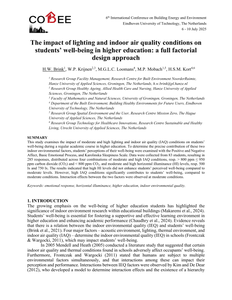Implementation of the United Nations Convention on the rights of persons with disabilities (UN CRPD) requires countries to harmonise their legislative frameworks with it. This paper investigates the national legislative frameworks of four Asian countries to see the extent to which they provide support services in accordance with Article 19 of the UN CRPD. The UN CRPD requires persons with disabilities to have access to and choice and control over support services. To analyse the policy alignment with the UN CRPD, an analytical framework based on the Capability Approach (CA) was developed. The results show that most countries address support services, including assistive devices, only from the perspective of a social security measure for persons with disabilities living in poverty, failing to uphold the rights of those not meeting those eligibility criteria. However, while support services are inseparably linked to social security, they also are a right for persons with disabilities. Therefore, a paradigm shift is required in the approach of support services and the distributive systems of countries, from one that addresses persons with disabilities as those requiring care considered a burden, to one that considers them rights holders with equal opportunities, for which, support services are a pre-requisite.
DOCUMENT

This study examines the impact of moderate and high lighting and indoor air quality (IAQ) conditions on students’ well-being during a regular academic course in higher education. To determine the precise contribution of these two indoor environmental factors, students’ perceptions of their well-being were examined with the Positive and Negative Affect, Basic Emotional Process, and Karolinska Sleepiness Scale. Data were collected from 83 students, resulting in 285 responses, distributed across four combinations of moderate and high IAQ conditions, resp. > 800 ppm ≤ 950 ppm carbon dioxide (CO2) and < 800 ppm CO2, and moderate and high horizontal illuminance (HI) levels, resp. 500 lx and 750 lx. The results indicated that high HI levels did not enhance students’ perceived well-being compared to moderate levels. However, high IAQ conditions significantly contributes to students’ well-being, compared to moderate conditions. Interaction effects between the two factors were observed at moderate conditions.
DOCUMENT

Purpose: This study aimed to develop and pretest a systematic conversation approach for nurses to tailor aftercare to oncology patient's goals, unmet needs and wishes. Methods: We used an iterative developmental process for complex interventions: 1. Identifying problems 2. Identifying overall objectives 3. Designing the intervention 4. Pretesting and adapting the intervention. Results: The main results of the problem identification were: non-systematic and incomplete screening of potential issues, caveats in providing information, and shared decision-making. The overall objective formulated was: To develop a model for aftercare conversations based on shared goal-setting and decision-making. The conversation approach consists of four phases: 1. Preparation of the consultation including a questionnaire, 2. Shared goal-setting by means of a tool visualizing domains of life, and 3. Shared care planning by means of an overview of possible choices in aftercare, a database with health care professionals and a cancer survivorship care plan. 4. Evaluation. The results of the pretest revealed that the conversation approach needs to be flexible and tailored to the patient and practice setting, and embedded in the care processes. The conversation approach was perceived as enhancing patient-centeredness and leading to more in-depth consultations. Conclusion: The conversation approach was developed in co-creation with stakeholders. The results of the pretest revealed important implications and suggestions for implementation in routine care. The aftercare conversation approach can be used by nurses to provide tailored patient-centered evidence-based aftercare. Tailored aftercare should support oncology patient's goals, unmet needs and wishes. Further tailoring is needed.
DOCUMENT
